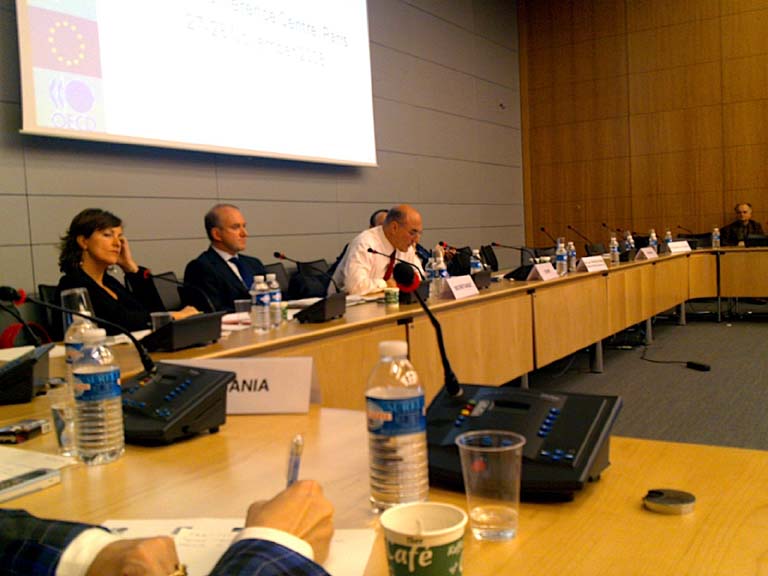
On November 27 and 28, 2008 in a joint organization of the European Commission, the DG Enlargement and the OECD SIGMA, in Paris has been held a seminar dedicated to introspection of progress and public administration reform, connecting the reform with anti-corruption activities and establishment and development of systems of internal financial controls in the countries of the West Balkans and Turkey.
The Deputy General Director of the DG Enlargement, Mr. Jan Truszczynski, has pointed out the significance of the process of public administration reform in a context of accessing the membership as an assumption of successful achievement of the interests of countries members and functioning of the EU in global.
The operator of the Department for institutional building of the DG Enlargement, Mr Morten Jung-Olsen has also expressed a readiness and preference of the EC to assist by available instruments the process of public administration reform in countries of the West Balkans and Turkey. He has also pointed out that these countries in the next two years can count on using of services of the SIGMA regarding the fact the EC has signed the financial agreement by which the funds for this purpose have been approved. He also said that in relation to the previous way of engaging the experts of the SIGMA, which was usually depending on the initiative of the states-users of the program, in the next period the European Commission will also have more active role in defining of the needs and engaging of services of the SIGMA according to priorities and measures of the European Partnership and other relevant documents. The countries-users of the program have been invited to take more active role in preparation and suggesting of the engagement of services of the SIGMA in the process of reform of horizontal administrative systems. It has been additionally concluded that the previous experiences have shown the expediency and justification of a complementary function of the SIGMA with other instruments of assistance as are Twinning, project of technical assistance, TAIEX and similar, and that such practice will be ensured in future as well.
The director of the program SIGMA/OECD, Mr. Bob Bonwit has presented the activities implemented in the countries members in the past years and invited the European Commission to more systematic approach in defining of priorities and demands towards the countries included in the process of the EU Integrations, by stating that a big quickness and a lack of more comprising introspection of the realistic needs in these countries often create additional problems in establishing of the efficient administrative structures. The viewpoint of the SIGMA is that a quality of the reform processes needs to have a privilege over quickness and a formal implementation, and that only quality can guarantee sustainability of the implemented reform measures as the assumption for successful functioning of the administration after accessing the membership of the EU.
During the seminar, a need for the public administration reform to necessarily include the activities on combat against the corruption and establishment and development of systems of internal financial controls in each administrative institution individually, has especially been emphasized. There has been negatively graded trend of development of anti-corruption strategic documents out of and independently on the process and volume of the public administration reform present in a larger number of countries-users of the SIGMA program and pointed out the need that the anti-corruption measures need to connect with the basic regulations by which the administrative procedure and a procedure of public procurements have been arranged. On several occasions there was a warning that the public administration reform is a process which also needs to be continued after accessing the membership of the EU because the experiences of some countries members from the last circles of enlargement show that by accessing the membership and by stopping of conditioning and active supervision from a side of the EC, the process of reforms loses on its dynamics and intensity. By having in mind these experiences, it is almost obvious that demands of the EC and the countries members of the EU towards new candidates and potential candidates will be significantly higher in relation to the last circles of the enlargement.
Besides the representatives of the countries users of the SIGMA program, the seminar has also been attended by the representatives of delegations of the EC in those countries. From Bosnia and Herzegovina, to the seminar have been invited and have involved in it the representatives of the Public Administration Reform Coordinator’s Office, the Agency for Public Procurements and the Office for Audit of the Institutions of Bosnia and Herzegovina.
